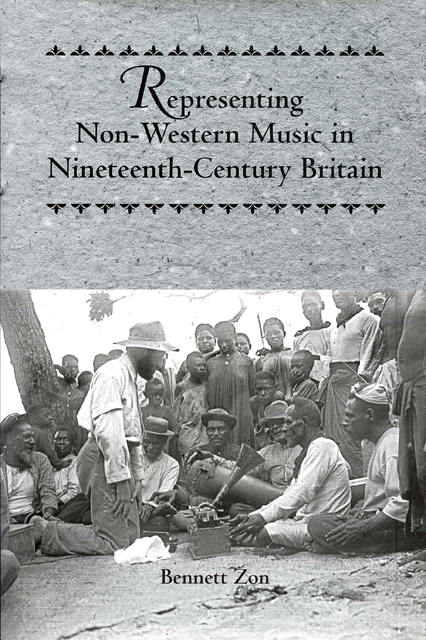Book contents
- Frontmatter
- Dedication
- Contents
- List of Illustrations
- Preface
- Acknowledgments
- Introduction Humanizing the Musical Savage: Orientalism and Racism in the History of British Ethnomusicology
- Part One Early Anthropological Influences
- Part Two Musicology in Transition to Evolution
- Part Three Individualism and the Influence of Evolution: Charles Samuel Myers and the Role of Psychology
- Part Four Retaining Cultural Identity: A. H. Fox Strangways and the Problems of Transcription
- Epilogue The “Ethnomusicology” in Long Nineteenth-Century Representations of Non-Western Music
- Works Cited
- Index
- Eastman Studies in Music
Chapter Twelve - The Psychological Writings and the Place of Evolution and Individual Differences
Published online by Cambridge University Press: 10 March 2023
- Frontmatter
- Dedication
- Contents
- List of Illustrations
- Preface
- Acknowledgments
- Introduction Humanizing the Musical Savage: Orientalism and Racism in the History of British Ethnomusicology
- Part One Early Anthropological Influences
- Part Two Musicology in Transition to Evolution
- Part Three Individualism and the Influence of Evolution: Charles Samuel Myers and the Role of Psychology
- Part Four Retaining Cultural Identity: A. H. Fox Strangways and the Problems of Transcription
- Epilogue The “Ethnomusicology” in Long Nineteenth-Century Representations of Non-Western Music
- Works Cited
- Index
- Eastman Studies in Music
Summary
Myers’s Psychological Writings
Bartlett, with an air of palpable disappointment, writes that Myers’s scientific writing was largely completed by the time he was forty—roughly halfway through his career. He divides what he calls Myers’s “scientific” writings into three clear categories: (1) expository; (2) ethnological with an experimental bias; and (3) strictly experimental. Although he does not provide copious examples of each category, it is clear that he perceives certain works as falling within these three categories quite distinctly. A Text-Book of Experimental Psychology is an example of expository writing; the musicological and anthropological work from 1896 to 1913 is ethnological; and Myers’s work on the direction of sound falls into the strictly experimental category. Bartlett suggests that Myers did his best work early in his career and, generally speaking, in the realm of expository writing. He hails the Text-Book, for instance, but describes the ethnomusicological writings as “fugitive pieces, full of interest, full of promise, but never fully developed.” Myers’s experimental work is given similar treatment. It is “elegant” and “well controlled, and beautifully described,” yet almost certainly wrong in its theoretical interpretation. Of course, as useful as Bartlett’s categories are, they do not present Myers’s work without transparent prejudice, and neither do they take into account the multidisciplinary nature of Myers’s thinking. They also exclude the considerable arena of popular psychology, in which Myers clearly spoke with ease and accessibility, and confine the sizable body of ethnomusicological writings to an ethnological category without any reference to their historiographicalor aesthetic import. In fact, although it is true that certain types of Myers’s writings more or less stopped around his middle age, he continued to develop and expand his ideas right up to the time of his death. So far from being effectively superannuated at forty, as Bartlett would have us believe, Myers’s work leavened over time into something of which Bartlett simply disapproved. The wholesale dismissal of Myers’s later writings attests to this, and it distorts the truly contributive nature of his output.
- Type
- Chapter
- Information
- Representing Non-Western Music in Nineteenth-Century Britain , pp. 196 - 217Publisher: Boydell & BrewerFirst published in: 2023

